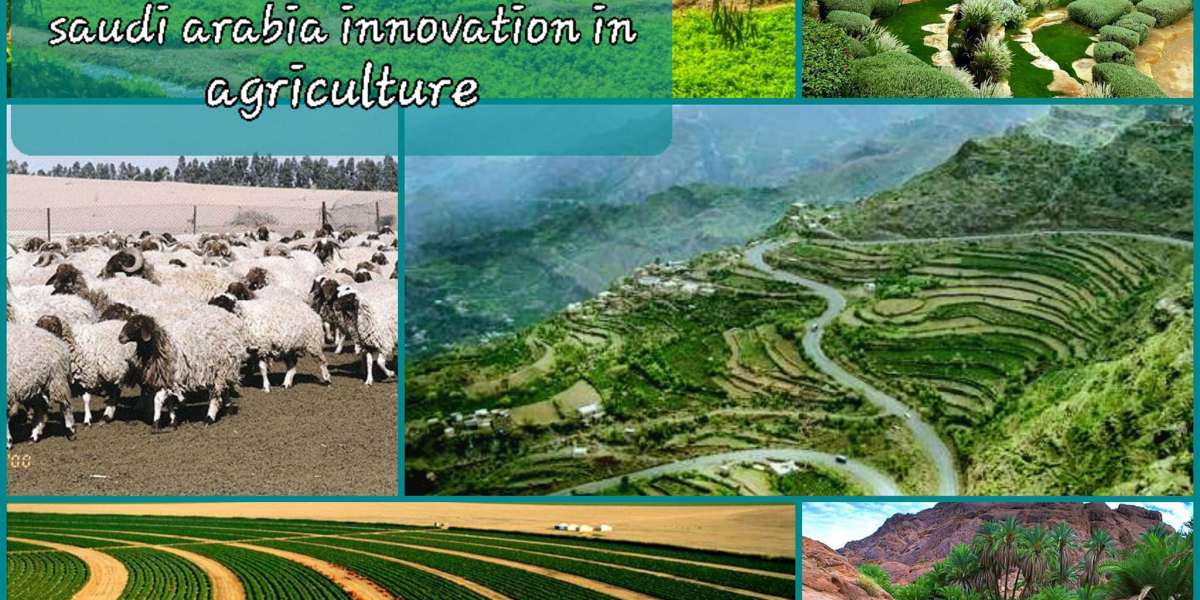# Saudi Innovation in Desert Agriculture: A Closer Look at What They Are Doing
## Introduction
Agriculture in arid regions has always been a challenge due to the scarcity of water and the harsh climatic conditions. However, Saudi Arabia, with its vast desert landscapes, has been pushing the boundaries of innovation in desert agriculture. Through advanced technologies, sustainable practices, and strategic investments, the country has made significant progress in transforming its arid lands into productive agricultural regions. In this article, we will take a closer look at the innovative approaches taken by Saudi Arabia in desert agriculture.
## Water Management and Conservation
One of the key challenges in desert agriculture is the limited availability of water. Saudi Arabia has invested heavily in water management and conservation techniques to overcome this challenge. The country has implemented advanced irrigation systems, such as drip irrigation and precision agriculture, which optimize water usage by delivering water directly to the roots of plants. This approach minimizes water wastage and ensures that plants receive the necessary moisture for growth.
Furthermore, Saudi Arabia has also embraced desalination technology to convert seawater into freshwater. Desalination plants have been established along the coast, providing a sustainable source of water for agricultural purposes. These measures have significantly reduced the country's dependence on freshwater resources and allowed for the cultivation of crops in arid regions.
## Controlled Environment Agriculture
To ensure optimal growing conditions in the desert, Saudi Arabia has turned to controlled environment agriculture (CEA) techniques. CEA involves creating controlled environments, such as greenhouses or indoor vertical farms, where temperature, humidity, light, and other factors can be carefully regulated. This approach allows for year-round cultivation of crops, regardless of the harsh external conditions.
In Saudi Arabia, CEA has gained significant traction, particularly in urban areas. Vertical farms, equipped with advanced technologies like hydroponics and aeroponics, are being established to maximize land utilization and increase crop yields. These vertical farms not only provide a consistent supply of fresh produce but also reduce the country's reliance on food imports.
## Renewable Energy Integration
Saudi Arabia recognizes the importance of sustainable practices in desert agriculture. To minimize reliance on fossil fuels and reduce carbon emissions, the country is integrating renewable energy sources into its agricultural operations. Solar energy, in particular, plays a crucial role in powering irrigation systems, desalination plants, and controlled environment agriculture facilities.
The abundance of sunlight in the desert makes solar energy a viable and environmentally friendly option. By harnessing solar power, Saudi Arabia not only reduces its carbon footprint but also ensures a reliable and sustainable source of energy for agricultural activities. This integration of renewable energy aligns with the country's broader commitment to transitioning towards a greener and more sustainable economy.
## Investment in Research and Development
Saudi Arabia understands the importance of continuous research and development in driving innovation in desert agriculture. The country has established research centers and institutes dedicated to studying arid agriculture and developing new technologies and techniques. These institutions collaborate with local and international experts to conduct cutting-edge research, explore innovative solutions, and share knowledge and best practices.
Furthermore, Saudi Arabia has also fostered partnerships with leading global agricultural organizations and universities to exchange expertise and promote collaboration in the field of desert agriculture. This collaborative approach ensures that the country remains at the forefront of agricultural innovation and continues to overcome the challenges posed by arid environments.
## Conclusion
Saudi Arabia's commitment to innovation in desert agriculture has yielded remarkable results. Through water management and conservation, controlled environment agriculture, renewable energy integration, and investments in research and development, the country has demonstrated its determination to overcome the challenges of arid farming. By embracing advanced technologies and sustainable practices, Saudi Arabia is not only ensuring food security and self-sufficiency but also setting an example for other regions facing similar agricultural constraints. With its continued focus on innovation, Saudi Arabia is paving the way for a more sustainable and productive future in desert agriculture.







